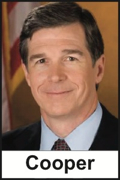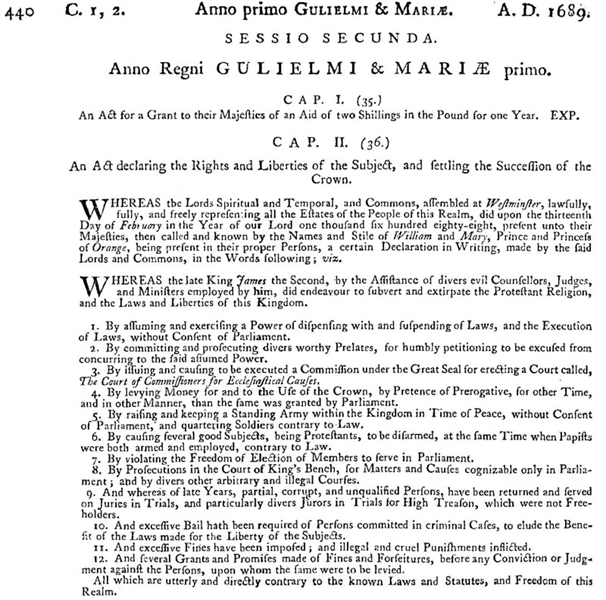Rascals case in brief
In the beginning, in 1989, more than 90 children at the Little Rascals Day Care Center in Edenton, North Carolina, accused a total of 20 adults with 429 instances of sexual abuse over a three-year period. It may have all begun with one parent’s complaint about punishment given her child.
Among the alleged perpetrators: the sheriff and mayor. But prosecutors would charge only Robin Byrum, Darlene Harris, Elizabeth “Betsy” Kelly, Robert “Bob” Kelly, Willard Scott Privott, Shelley Stone and Dawn Wilson – the Edenton 7.
Along with sodomy and beatings, allegations included a baby killed with a handgun, a child being hung upside down from a tree and being set on fire and countless other fantastic incidents involving spaceships, hot air balloons, pirate ships and trained sharks.
By the time prosecutors dropped the last charges in 1997, Little Rascals had become North Carolina’s longest and most costly criminal trial. Prosecutors kept defendants jailed in hopes at least one would turn against their supposed co-conspirators. Remarkably, none did. Another shameful record: Five defendants had to wait longer to face their accusers in court than anyone else in North Carolina history.
Between 1991 and 1997, Ofra Bikel produced three extraordinary episodes on the Little Rascals case for the PBS series “Frontline.” Although “Innocence Lost” did not deter prosecutors, it exposed their tactics and fostered nationwide skepticism and dismay.
With each passing year, the absurdity of the Little Rascals charges has become more obvious. But no admission of error has ever come from prosecutors, police, interviewers or parents. This site is devoted to the issues raised by this case.
On Facebook
Click for earlier Facebook posts archived on this site
Click to go to
Today’s random selection from the Little Rascals Day Care archives….
Click for earlier Facebook posts archived on this site
Click to go to
Today’s random selection from the Little Rascals Day Care archives….
What was learned from Little Rascals debacle?
July 19, 2013
“…There should be lessons here, lessons about the risks in cases so emotional that they take on a life of their own; lessons for prosecutors who need to use their considerable investigative resources to learn, and not to crusade; lessons about the price in credibility paid by a judicial system in which defendants who are not rich are up against tremendous odds….
“The Little Rascals case…. has wasted many years of many lives. The greater waste will be if nothing is learned from it.”
– From “Case dismissed” (News & Observer editorial, May 28, 1997)
Mr. Attorney General, here’s chance to do right
 Aug. 13, 2012
Aug. 13, 2012
I wrote Mark Davis, general counsel to Gov. Bev Perdue, to ask that she issue a “statement of innocence” on behalf of the Edenton Seven. This is Davis’s response: “Because the Attorney General’s Office handled the appeals in the cases you reference in your letter, I think that office is in the best position to evaluate this issue. I suggest you contact them regarding this matter.”
So noted. This, then, is from a letter I sent last week to Roy Cooper, attorney general of North Carolina:
When the Duke lacrosse case collapsed in 2007, you granted the defendants a “statement of innocence.” Although the statement was not a formal legal document, as I understand it, it clearly demonstrated your commitment to making amends for a wrongful prosecution by the State of North Carolina.
I am requesting that you take similar action on behalf of the defendants in the notorious Little Rascals Day Care case.
For more than a decade, beginning in the 1980s, day care centers across the United States were victimized by a wave of wholly unsubstantiated charges of “ritual sexual abuse.” The testimony of child-witnesses, corrupted by misguided therapists, resulted in dozens of convictions and incarcerations.
In all these cases, charges eventually were dropped, convictions overturned or plea agreements accepted with no admission of guilt.
Today there is no dispute among respected psychiatrists, psychologists and social scientists: The defendants were innocent victims of a “moral panic” that bore striking similarities to the Salem witch hunts 300 years earlier.
One of the most prominent of these prosecutions, of course, was the Little Rascals case in Edenton. Between 1991 and 1997 the PBS series “Frontline” devoted a total of eight hours to the plight of the Edenton Seven, leaving millions of viewers appalled at North Carolina justice.
After the longest and costliest trial in state history, Robert Kelly was convicted of 99 counts of child abuse and sentenced to 12 consecutive life sentences. He served six years before the North Carolina Court of Appeals overturned his conviction.
Dawn Wilson was convicted on five counts of child sex abuse and given a life sentence. She served two years in prison or under house arrest. The Court of Appeals also overturned her conviction.
Betsy Kelly and Scott Privott both agreed to plea deals with no admission of guilt.
Charges against Robin Byrum, Darlene Harris and Shelley Stone were dropped.
After the defendants were released, however, prosecutors continued to insist they were guilty. Exoneration was willfully withheld.
The Little Rascals case not only shattered the lives of the defendants, but also left a deep and ugly stain on the reputation of the State of North Carolina.
In 2001, Massachusetts Governor Jane Swift signed a resolution proclaiming the innocence of the victims of the Salem Witch Trials.
In time, such victims of the ritual-abuse day-care panic as the Edenton Seven will surely receive similar exoneration. Why not now? Why not in North Carolina? This is an opportunity to demonstrate moral leadership on a national scale.
I blog about the case at littlerascalsdaycarecase.org, where you will find an extensive archive and updates. I would be eager to provide additional facts by e-mail or to meet with you in Raleigh at your convenience.
Mr. Cooper, I appreciate very much your attention to reviewing this case and to perhaps mitigating the profound injustice suffered by these seven innocent North Carolinians.
I’ll post his response, of course.
‘We’ve learned a lot….’ (Too bad it took so long)
March 30, 2012
Kee MacFarlane is the notorious therapist who led the ritual abuse scare of the late 1980s (and pioneered the misuse of anatomically correct dolls in interviewing children). In just four months MacFarlane diagnosed more than 360 children at the McMartin Pre-School as abused.
In 2005 she declined to be interviewed by CNN but sent a statement:
“We’ve learned a lot in 20 years about how to interview children for forensic purposes and how to manage complex cases such as this one. It would be a sad commentary if we didn’t learn from such painful experience.”
Not much of a mea culpa – but still more than anyone connected with the Little Rascals prosecution has managed.
Prosecutors misused bail to squeeze defendants
 Aug. 16, 2015
Aug. 16, 2015
“In 1689, the English Bill of Rights outlawed the widespread practice of keeping defendants in jail by setting deliberately unaffordable bail, declaring that ‘excessive bail shall not be required, nor excessive fines imposed.’ The same language was adopted word for word a century later in the Eighth Amendment to the United States Constitution.
“But as bail has evolved in America, it has become less and less a tool for keeping people out of jail, and more and more a trap door for those who cannot afford to pay it….
“Across the criminal-justice system, bail acts as a tool of compulsion, forcing people who would not otherwise plead guilty to do so….”
– From “The Bail Trap” by Nick Pinto in the New York Times (Aug. 13)
Could there be a more bare-faced example of “excessive bail” than that set for the Edenton Seven?
- Bob Kelly, $1.5 million (later reduced to $200,000 – after his conviction was overturned – then $50,000 )
- Betsy Kelly, $1.8 million (reduced to $400,000)
- Scott Privott, $1 million (reduced to $50,000)
- Shelley Stone, $375,000
- Dawn Wilson, $880,000 (reduced to $200,000)
- Robin Byrum, $500,000 (reduced to $200,000)
- Darlene Harris, $350,000
Did prosecutors fear that the defendants would flee to Argentina? That they would prowl the town’s playgrounds in search of new victims? No, these absurd amounts surely had no purpose but to coerce confessions. How shocked and disappointed they must have been that not one of the defendants, though crushed financially, succumbed.











0 CommentsComment on Facebook